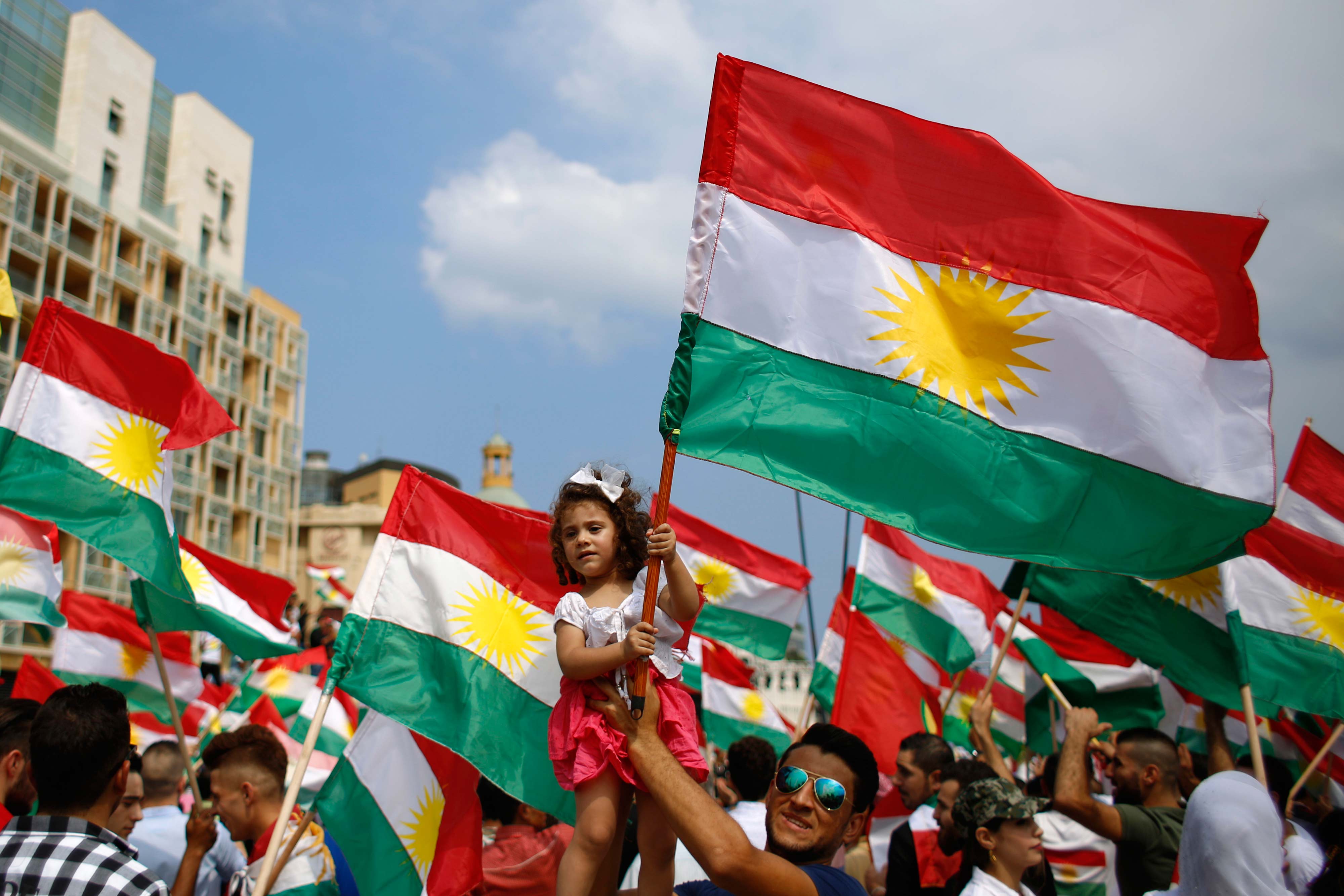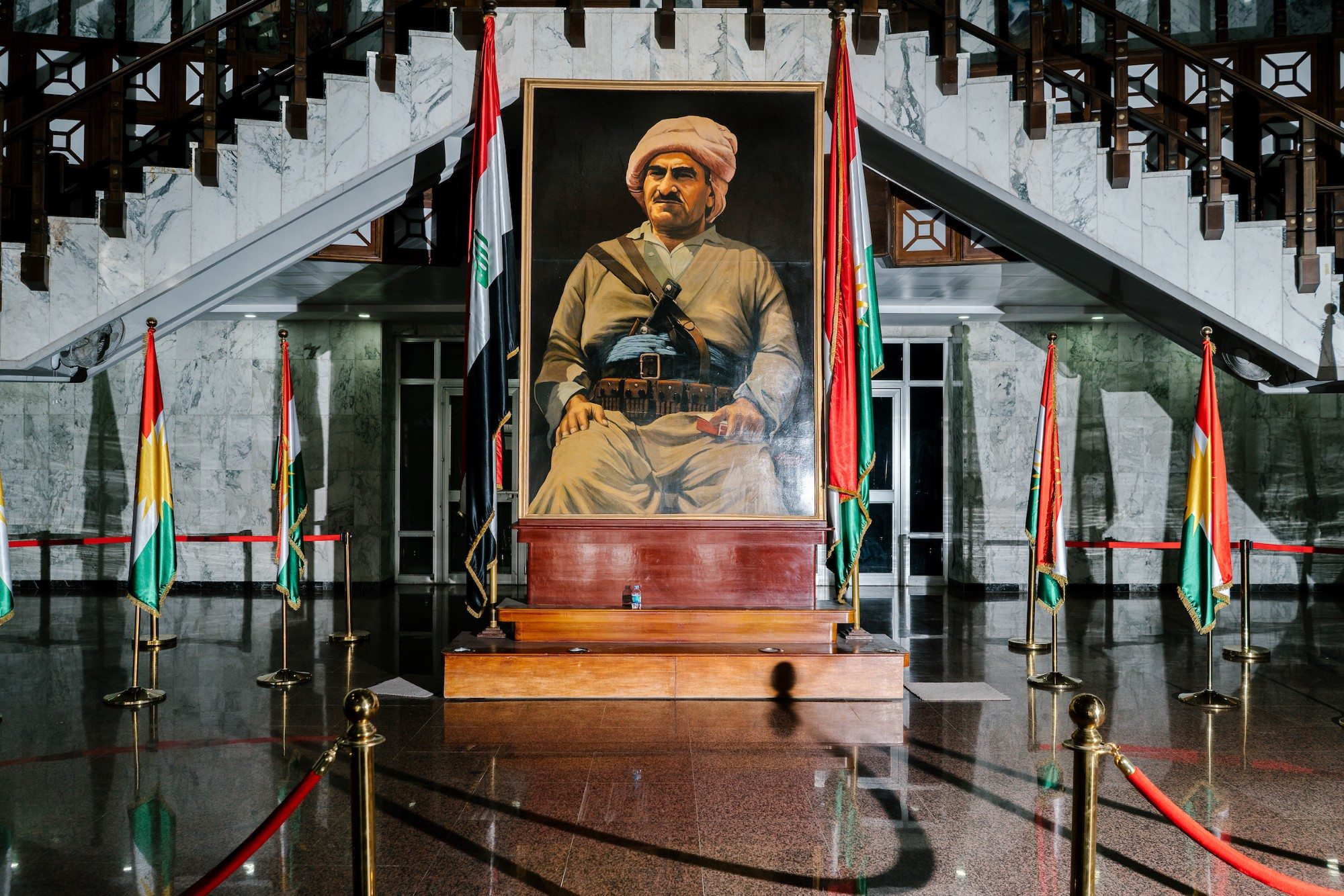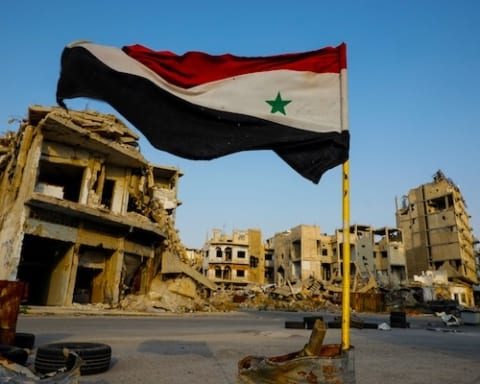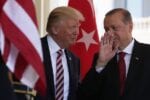Erbil, Iraq (LC)
This Wednesday, electoral commission officials announced that an overwhelming majority of Iraqi Kurds voted “yes” to splitting from Iraq in a non-binding referendum that took place on Monday. Reportedly, 92.73% of those who cast ballots were in favor of becoming fully independent from the rest of Iraq. Turn out for the vote was estimated at 72.61% of the population, making independence the choice of 3,305,925 people in the region.
The poll took place against the wishes of the federal government. Iraqi Prime Minister Haider al-Abadi publicly denounced the referendum, saying it was not a sufficient for independence talks under the Kurdistan Regional Government’s own constitution. Abidi insisted that federal forces would “impose Iraqi law in the entire region of Kurdistan under the Constitution.”
Following the results of the poll, the Iraqi parliament called for troops to be sent to Kirkuk, with the aim of taking control of its oilfields.
Officials in the region recognize that the Kurds have many obstacles to overcome. There have been threats to disputed lands along Kurdistan’s international land borders, namely Kirkuk (containing about 40 percent of Iraq’s oil reserves) and Nineveh Plain (which is home to many Christians and subject to frequent harassment by Kurdish security forces). The president of the Kurdistan Regional Government (KRG) Masoud Barzani even said that he does not expect a declaration of independence, but rather hopes that the referendum will incite open negotiations between the KRG and the federal government.

Many Kurdish people had positive expectations for the Trump administration’s position on the referendum. After all, Washington has historically supported self-determination efforts in countries like Kosovo, South Sudan, and East Timor. The Kurds have also been a long-time ally of the U.S., from the disputes with Saddan Hussein in the 1990s to more current Iraqi insurgency struggles against the Islamic State. In a July 2016 agreement, the U.S. agreed to supply more than $400 million in direct aid to the Kurds’ Peshmerga armed forces.
Despite these ties, the White House released a statement on September 15th saying that the U.S. “does not support the Kurdistan Regional Government’s intention to hold a referendum.” Moreover, U.S. Special Presidential Envoy to Counter ISIS Brett McGurk asserted in a press conference in Erbil that “there is no international support for the referendum, really, from anybody.” McGurk also described the referendum as “ill-timed and ill-advised” and “risky.”
Trump’s team cites their previously-established priorities for national security crises as the reason they could not support the referendum. Conflicts with Iran, North Korea, and Russia take precedence over Kurdish issues. Apparently, the administration suggested postponing the vote until after the upcoming Iraqi elections.

Now, the Kurds have many obstacles to overcome if they are to proceed with plans for independence. The region is over 20 billion dollars in debt, and the state will need foreign investment to expand and diversify the economy. Provided that the Kurds can even maintain control of the lucrative lands they have now, they will face formidable tensions finding these investors amongst outside hostile powers.
Kurdistan will also have to make a difficult transition from its autonomous guerrilla security units to a single, unified, and professional Kurdish defense force. Beyond these issues, Kurdistan has much to consider as it embarks on a historical path to independence.
LIMA CHARLIE NEWS, with Ashley Bogdan
Lima Charlie provides global news, insight & analysis by military veterans and service members Worldwide.
For up-to-date news, please follow us on twitter at @LimaCharlieNews



![STRATEGIC OPTION | Syrian Endgame - The Hard Truth [Lima Charlie News][Photo: Bulent Kilic]](https://limacharlienews.com/wp-content/uploads/2019/05/STRATEGIC-OPTION-Syrian-Endgame-e1558501175322-480x384.png)
![Image The Alevis Dilemma [Lima Charlie News]](https://limacharlienews.com/wp-content/uploads/2019/04/Alevis-Erdogan-480x384.png)

![The Art of Foreign Influence: The Russian Military Adviser [Lima Charlie News]](https://limacharlienews.com/wp-content/uploads/2019/06/The-Art-of-Foreign-Influence-The-Russian-Military-Adviser-480x384.png)
![Iranian crackdown on MEK shows the activist group has popular support [Lima Charlie News]](https://limacharlienews.com/wp-content/uploads/2019/05/Iran-MEK-Lima-Charlie-001-480x384.png)
![Syria’s oil, gas and water - the Immiscible Solution to the War in Syria [Lima Charlie News][Photo: ANDREE KAISER / MCT]](https://limacharlienews.com/wp-content/uploads/2019/05/Syria’s-oil-gas-and-water-480x384.png)

![STRATEGIC OPTION | Syrian Endgame - The Hard Truth [Lima Charlie News][Photo: Bulent Kilic]](https://limacharlienews.com/wp-content/uploads/2019/05/STRATEGIC-OPTION-Syrian-Endgame-e1558501175322-150x100.png)